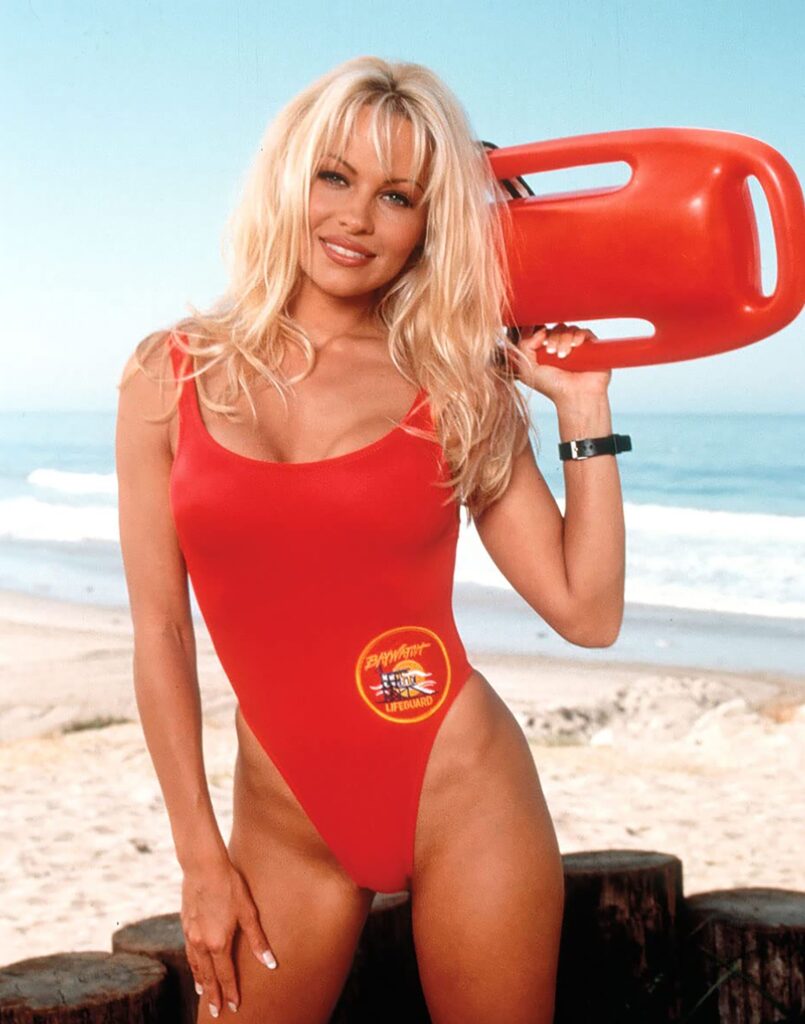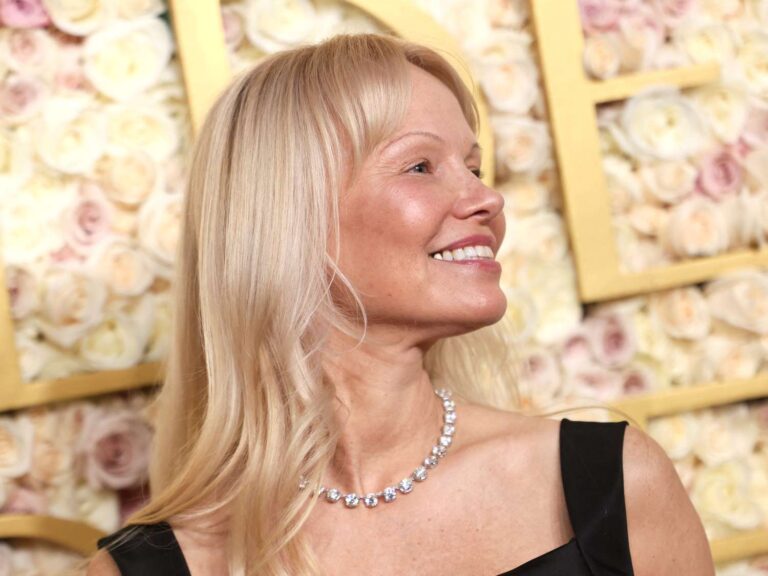Pamela Anderson’s decision to appear makeup-free at the Golden Globes, while competing for Best Actress in a Drama, became global news. Known for her iconic, glamorous image, Anderson’s bare-faced look was a stark departure from expectations—and a powerful statement on societal beauty standards.
This moment invites a deeper conversation about the immense pressure women face to maintain aesthetic perfection, the double standards in how beauty is perceived, and what it will take to challenge these norms.
The Symbolism of a No-Makeup Look
When a high-profile celebrity like Pamela Anderson steps away from the glam expected at an event as prestigious as the Golden Globes, it’s more than a style choice—it’s a cultural moment.
- Hollywood’s Beauty Obsession:
Hollywood has long perpetuated an image of flawless, unattainable beauty. Red carpets often serve as showcases for meticulously curated looks, making Anderson’s decision a subversion of that tradition. - Why It Matters:
Her choice challenges the notion that women must conform to aesthetic ideals to be taken seriously or celebrated for their talents. It raises the question: Why does a makeup-free face make headlines, but a man with an unshaven or casual look does not?
Dr. Renee Engeln, author of Beauty Sick, explains:
“When women deviate from expected beauty norms, it becomes a spectacle because our society is conditioned to expect perfection.”

Photo of Pamela Anderson from CNN Style, showing Anderson as a volleyball coach, C.J. Parker, in the 1990s hit show.
The Double Standard and Societal Hypocrisy
The scrutiny Anderson faced reflects broader societal hypocrisy regarding beauty standards:
- For Women: A “natural” look is idealized, yet still must meet an impossible standard of perfect skin, even tone, and subtle enhancement.
- For Men: Casual or “rugged” appearances are often celebrated as authentic and relatable.
The Real Issue:
Women are judged on their ability to maintain the illusion of effortlessness, which demands significant time, money, and emotional energy.
- Cultural Impact: Platforms like Instagram amplify this pressure, with curated feeds and filters promoting an unrealistic version of “natural” beauty.
- Stat: According to a Dove Self-Esteem Project report, 70% of women feel increasing pressure to meet beauty ideals perpetuated by social media.
Women Perpetuating the Cycle
Interestingly, many of the harshest critiques about women’s appearances come from other women.
- Internalized Pressure: This phenomenon stems from generations of societal conditioning, teaching women to scrutinize themselves and each other.
- Social Media’s Role: Platforms like TikTok and Instagram foster comparison culture, where women’s looks are dissected in comments and posts.
What Needs to Change?
To break free from these patterns, society must shift its focus away from appearance and toward intrinsic values like talent, character, and accomplishments.
1. Education and Awareness
- Teach younger generations to critically analyze media and social content.
- Use resources like Common Sense Media to encourage digital literacy and body positivity.
2. Celebrate Authenticity
- Highlight celebrities like Pamela Anderson, Jameela Jamil, and Alicia Keys, who challenge beauty norms.
- Support media that showcases diverse, real-life representations of women.
3. Normalize Aging and Imperfections
- Advocate for brands and industries to stop using filters and extreme editing.
- Celebrate aging as a natural process, not a flaw.
4. Engage Men as Allies
- Encourage men to challenge beauty standards by rejecting societal pressures placed on women.
- Support conversations that focus on shared responsibilities and equal respect in partnerships.
Proposals to Break the Cycle
- Redefine Beauty in Media:
Campaigns like Dove’s Real Beauty Project aim to broaden definitions of beauty by including all ages, races, and body types. - Prioritize Inner Qualities:
Shift the narrative to celebrate women’s achievements, talents, and contributions instead of their appearances. - Combat Unrealistic Standards Online:
- Use platforms like Body Positive Movement to educate and empower.
- Highlight influencers who promote authenticity over perfection.
Conclusion: A Cultural Reset
Pamela Anderson’s no-makeup moment at the Golden Globes is a mirror reflecting society’s lingering obsession with women’s appearances. While movements promoting acceptance and diversity have gained traction, the global reaction to her choice shows there is still work to be done.
As a society, we must redefine what beauty means—moving beyond the superficial to celebrate diversity, authenticity, and humanity. Only then can we begin to dismantle the unrealistic expectations that imprison women in the pursuit of perfection.

